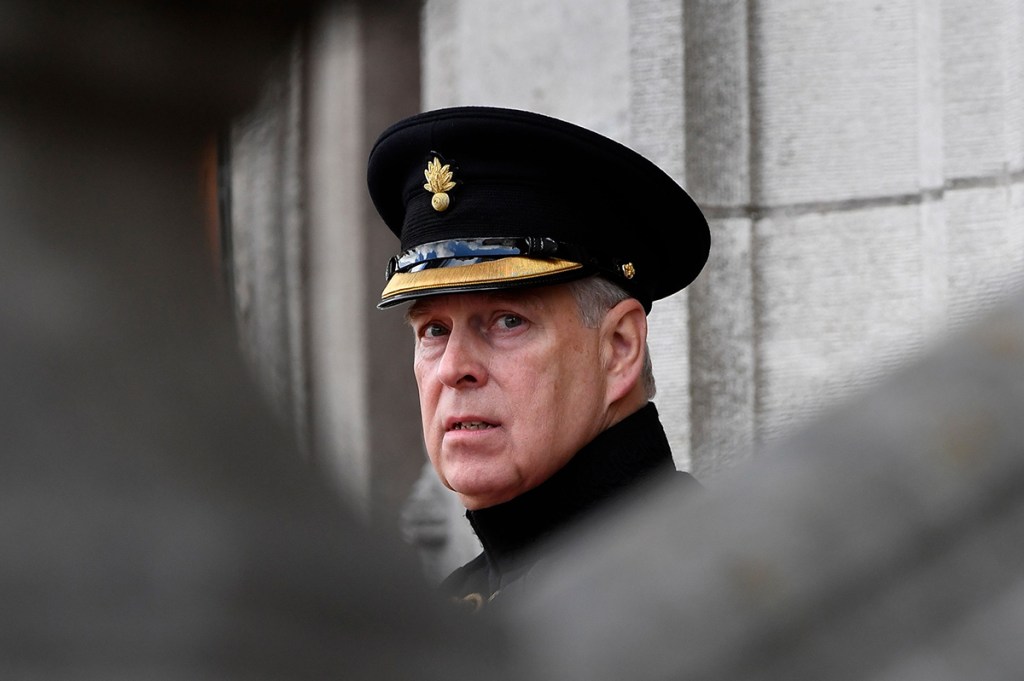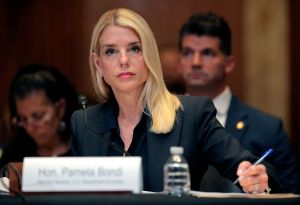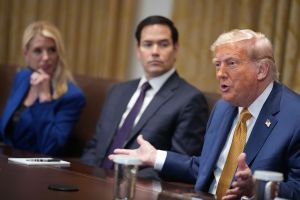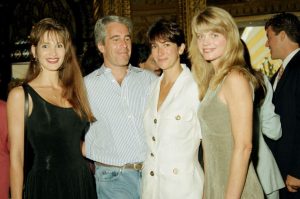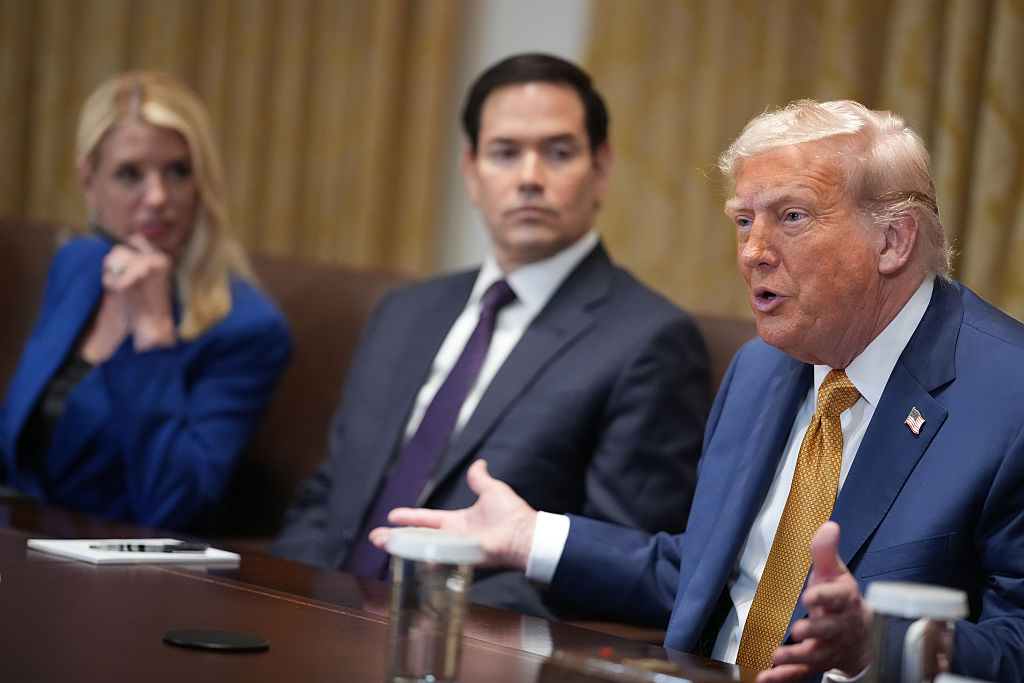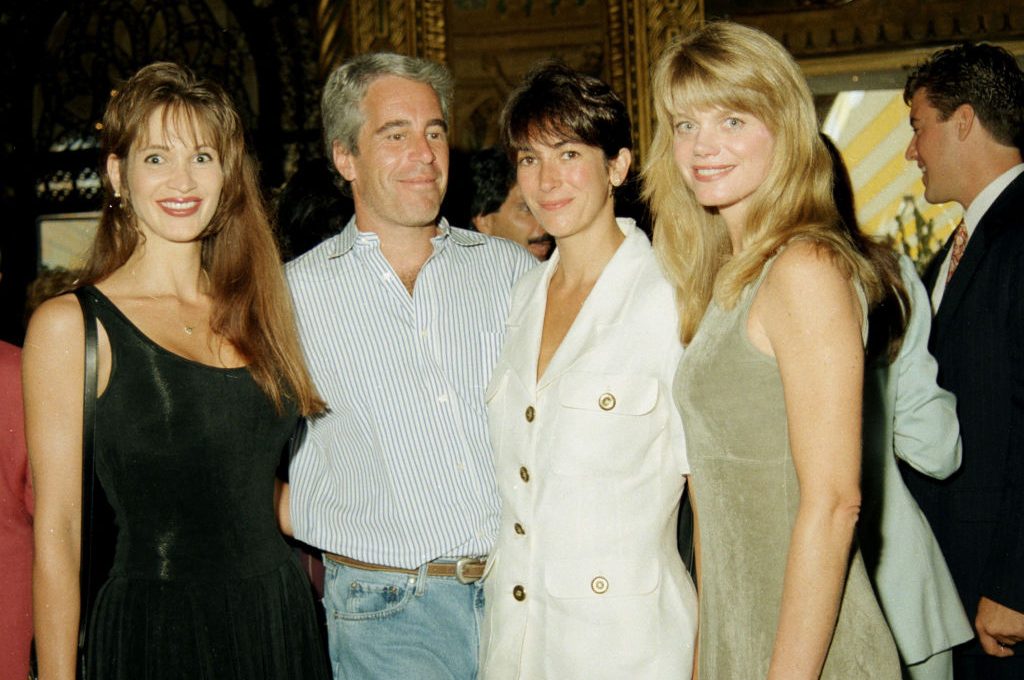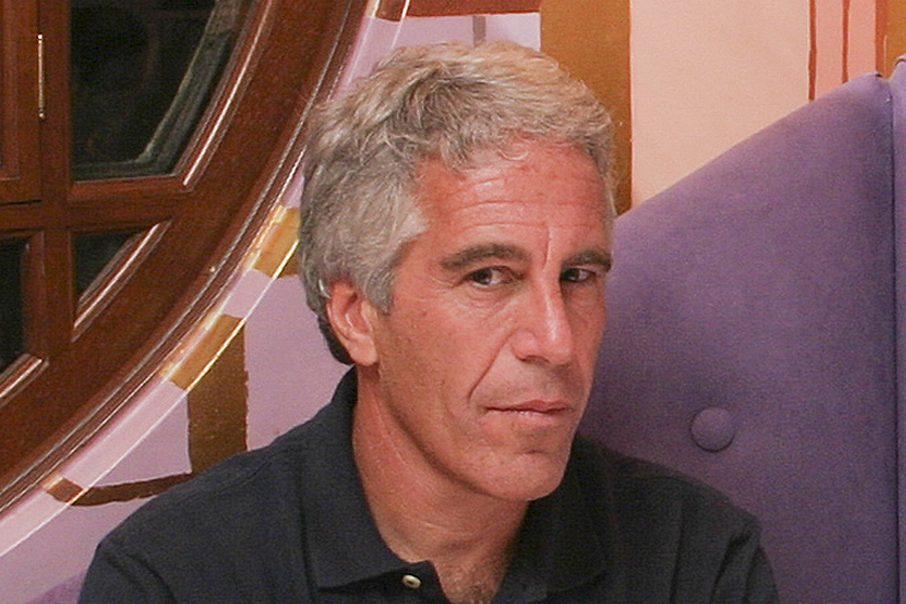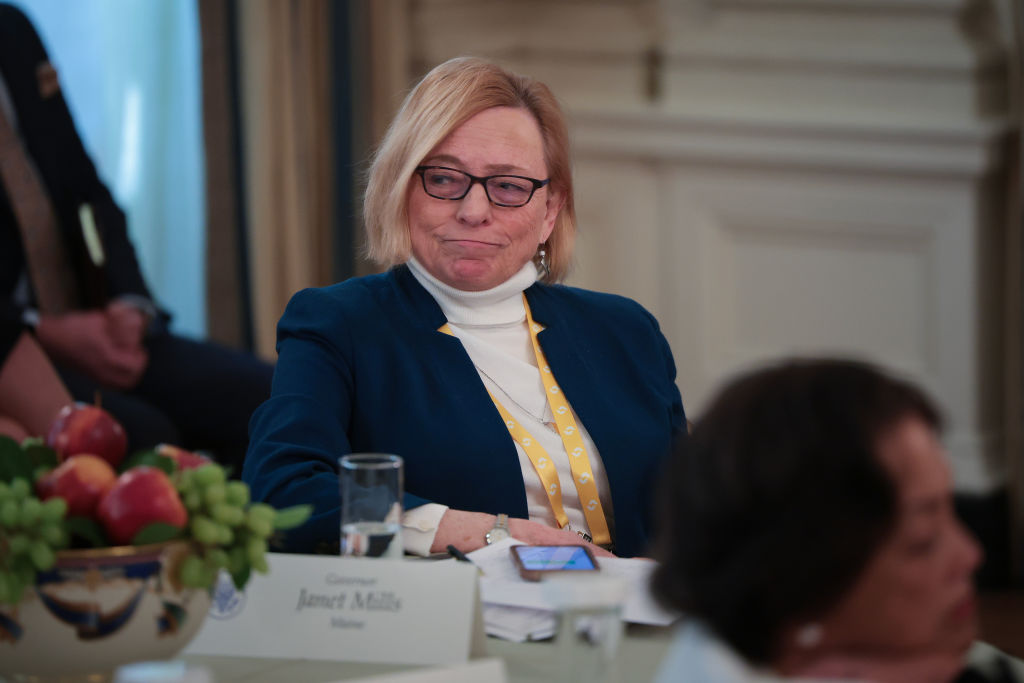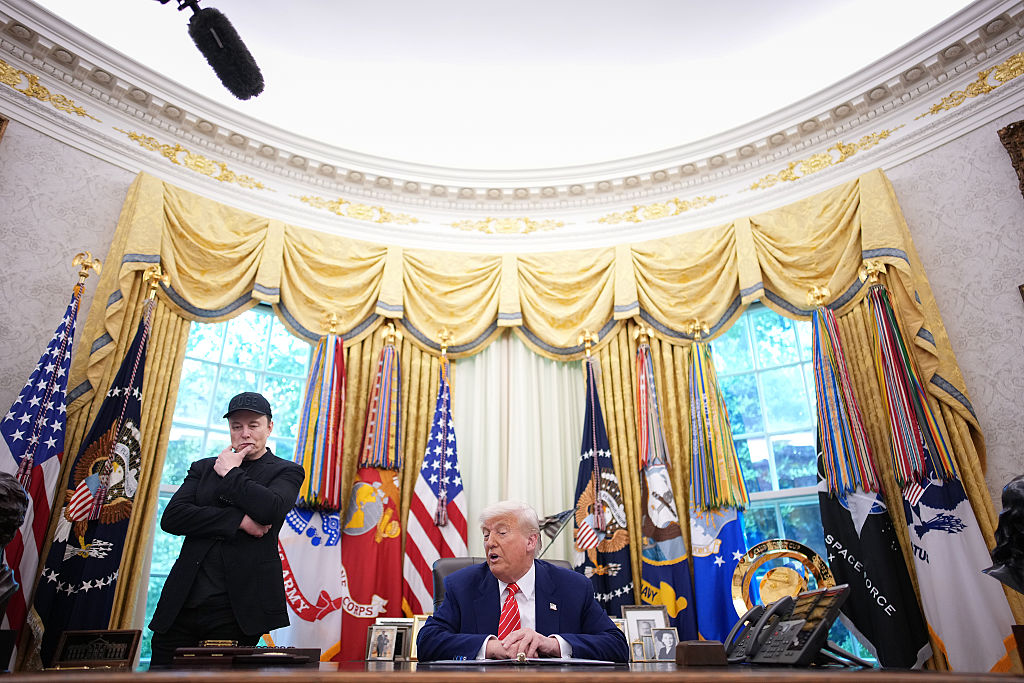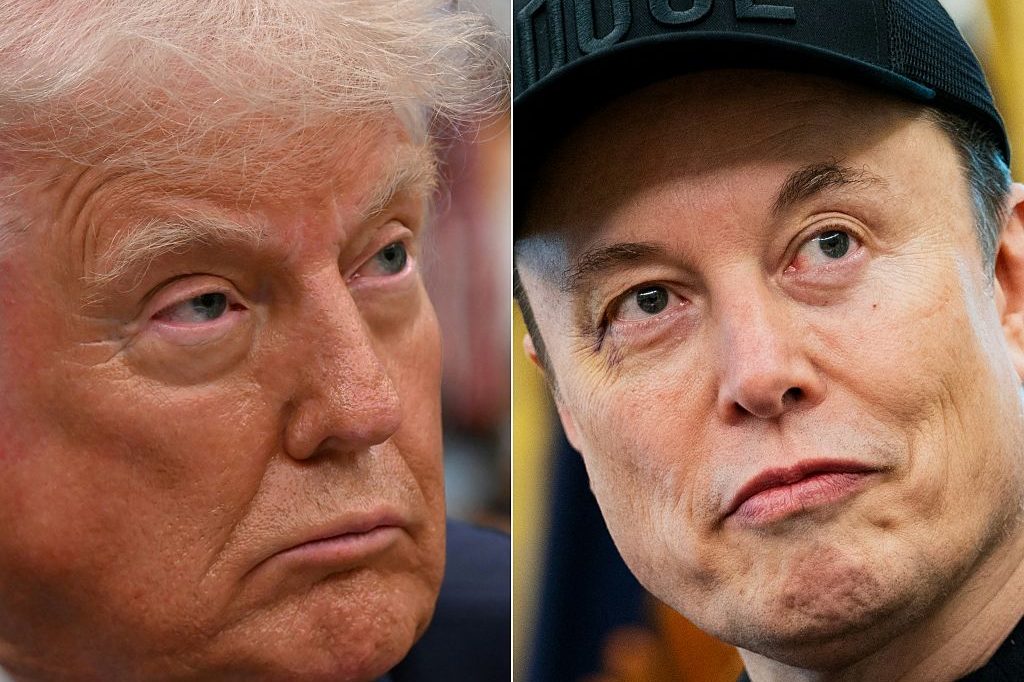Prince Andrew isn’t hiding from the Department of Justice, a source close to the Prince told me on Friday — and Geoffrey Berman, US attorney for the Southern District of New York, isn’t telling the truth.
Who to believe, the prince or the prosecutor? Andrew has kept his head below the parapet since discussing his connections to Jeffrey Epstein in a disastrous BBC interview last November. But Berman has been a voluble and public presence. Three times in the last six months, Berman has accused Andrew and his lawyers of refusing to co-operate with the Department of Justice’s request that he make a witness statement. Andrew and his team have said nothing — until now.
‘Berman has actively misled the global media and the global audience,’ my source alleges. ‘The Duke’s legal team has dozens of email exchanges with the Southern District, proving that there has been full co-operation.’
On January 27, Berman denounced the Duke from the steps of Epstein’s Manhattan townhouse. Berman claimed to be facing a ‘wall of silence’ and ‘zero co-operation’ from Andrew. But this, my source tells me, wasn’t true: ‘Berman must have known we had an email trail.’
Hard as it may be to believe, the DoJ made no effort to contact Prince Andrew during Jeffrey Epstein’s lifetime. Only after Epstein’s death in August 2019 and the BBC’s broadcast of Virginia Roberts Giuffre’s accusations in November 2019, did the DoJ approach the Prince — not as a suspect, but as a witness.
‘The lawyers responded immediately,’ I’m told. In early January, the Prince’s new legal team suggested that they draft a proposal for how Andrew would deliver his witness statement. The DoJ, my source reports, accepted this approach. So why did Berman publicly attack Andrew only a week later?
‘Since Epstein’s death, commercial law firms and the Department of Justice have targeted the Prince, even though the facts about Epstein haven’t changed,’ my source explains. ‘The DoJ is a water carrier for the commercial law firms who are representing the undoubtedly legitimate claims of Epstein’s victims. The Duke is being used as a lightning conductor for the DoJ and a battering ram for the law firms who want to secure settlements from Epstein’s estate.’
Although the DoJ wanted to talk with Andrew as a witness, Berman seemed to imply that Andrew had aided Epstein’s crimes: ‘Epstein couldn’t have done what he did without the assistance of others.’ This, I’m told, was an ‘overt breach of the DoJ’s own rules on how to engage with witnesses, and the need to maintain privacy and confidentiality’.
After Berman’s attack in January, there was a ‘very frank exchange of views’ between Andrew’s lawyers and the Southern District. But Andrew’s team played by the rules and didn’t release emails that would prove they were negotiating with the Southern District in good faith.
Berman’s response was to launch a second public salvo. On March 9, he accused Andrew of having ‘completely shut the door on voluntary co-operation’. As Camilla Tominey of the London Telegraph noticed, Berman had contradicted his previous statement: if Andrew’s team were putting up a ‘wall of silence’, how could Berman know Andrew had ‘shut the door’ on him? Later in March, the US Attorney’s Office admitted that there had in fact been ‘communications through [the Prince’s] attorneys, but we have been informed that he is not willing to submit to an interview’.
The problem, I’m told, wasn’t Andrew’s willingness, so much as a collapse of trust. Berman’s grandstanding chilled relations between the DoJ and Prince Andrew’s lawyers to ‘somewhere between a Cold War and a Mexican stand-off’.
In early June, the DoJ issued a Mutual Legal Assistance Treaty (MLAT) request to the British Home Office, a formal request for Prince Andrew’s response. Berman went back on the offensive, possibly breaching the DoJ’s rules for a third time by implying that Andrew was evading his enquiries: ‘Our doors remain open and we await word on when we can expect him.’
That confidential MLAT request somehow found its way into the British press — and forced Andrew’s team to make a statement.
‘The MLAT leak was a further perversion of the narrative and the legal process,’ my source tells me. ‘Berman has done everything he can to publicly destroy our trust and TO lie.’ The Duke’s team suspect that Berman is playing to the gallery of the American media, as his predecessor at the Southern District Rudy Giuliani did before him: ‘We’re acutely conscious Berman may think it in his interest to keep us in this stand-off.’
Prince Andrew did his cause no favors with the BBC interview. He looked shifty under aggressive questioning — more like a defendant than a witness. I found him unconvincing: his responses raised as many questions as they answered. He was, I now hear, either badly advised — or he didn’t listen to advice.
‘The Prince was quite simply an easy target,’ his friend tells me. ‘Andrew was the least protected of all the individuals who knew Jeffrey Epstein — a lot less protected than Donald Trump or Bill Clinton or Ghislaine Maxwell, who has simply disappeared. Andrew was a sitting duck, and he wasn’t well protected by the team over at Buckingham Palace. That’s not a criticism of the Palace. It’s the way the Palace has to operate, over decades and centuries, not days and weeks. They simply don’t have the freedom of maneuver to afford Andrew the legal and media protection he needs and deserves.’
[special_offer]



